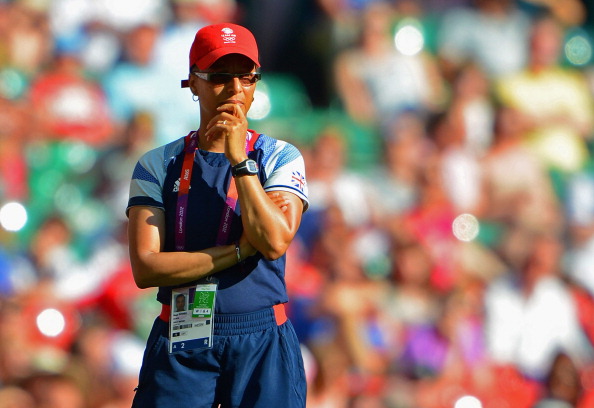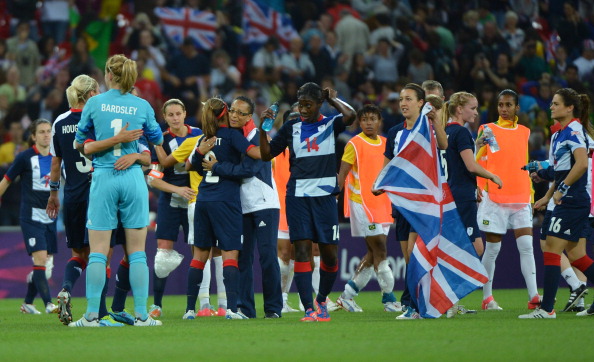By Andrew Warshaw
October 25 – England women’s national football coach Hope Powell says a way must be found to allow a unified Team GB squad to participate in future Olympic Games to help develop the sport.
Last month, the Football Association (FA) announced that the Olympics would no longer feature a British men’s team and that London 2012 was a one-off because of its host nation status.
But Powell, who was handed responsibility for the women’s squad that smashed attendance records at London 2012, says the female version of Team GB must be allowed to participate at the Rio Olympics in 2016 and thereafter.
“The stage at London 2012 was enormous and really gave us a platform to recognise the women’s game and showcase the sport,” Powell told insideworldfootball.
“The Olympic fever is global.
“The World Cup is very special but I understand why some associations like the United States regard the Olympics as the pinnacle.”
Although the women’s game in Britain is light years behind the men’s, attendance records at London 2012 were remarkable.
Team GB’s shock win over Brazil to top their group and reach the quarterfinals attracted a record 70,584 crowd, not quite enough to break the Olympic record of 76,489 set at the 1996 Games but comfortably surpassing the previous record of 53,000 for a women’s match in Britain.

Although playing as a united team at future Games would prove complicated given that qualification is based on rankings in the World Cup, when England and the other British sides play as individual nations, Powell (pictured above) wants a way to be found to ensure the women can carry on trying to qualify as Team GB.
“Internally, the political side of it is not my role,” she explained.
“The challenge will obviously be how we get a Team GB – if the principle is agreed.
“I can’t answer those questions but what I do know is that the players would like to be in it again, likewise from the coaching side.”
Powell was speaking after the FA announced a five-year plan to build the fan base of the women’s game, galvanised by the atmosphere of London 2012, and bring it to a wider audience.
The FA is to create an “Elite Performance Unit” and appoint a head of elite development and for the first time in its 149-year history, it will create a separate commercial programme for women’s football.
The proposals will also allow the Women’s Super League, which has already met its attendance targets, to expand into two divisions from 2014.
“I remember the attendance figure of the Brazil game because it broke all records,” said Powell.
“Those Team GB games told me there was a potential appetite for people to come and watch women’s football.”
Contact the writer of this story at zib.l1734921272labto1734921272ofdlr1734921272owedi1734921272sni@w1734921272ahsra1734921272w.wer1734921272dna1734921272

